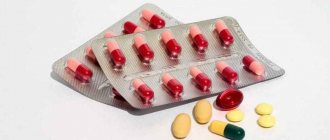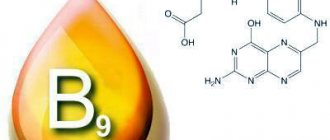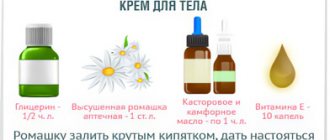Perhaps everyone knows that B vitamins are beneficial for the body, but what exactly are these benefits? The fact is that they help obtain energy from carbohydrates and fats, are responsible for the production of hormones and neurotransmitters, ensure the functioning of the nervous system and skin health. These are essential substances for our body.
Dietary supplements can also help to avoid a deficiency of B vitamins. How to prevent vitamin deficiency?
"Children's ferrohematogen" is an additional source of iron, vitamins C and B6, copper and folic acid. Read more... Dietary supplement. Not a medicine.
Folic acid deficiency can increase the risk of atherosclerosis, stroke and heart attack, nervous disorders and early menopause in women. What benefits does vitamin B9 bring to the body?
Iron supplements in addition to a balanced diet may help prevent low hemoglobin levels. Why is low hemoglobin level in the blood dangerous?
People leading an active lifestyle may need increased iron intake. Why does the body need iron?
Low levels of iron in the blood can negatively affect your appearance and lead to anemia. Prevention of anemia...
Iron takes part in many vital processes, including hematopoiesis, oxygen metabolism and the maintenance of immunity. How to replenish iron deficiency in the body?
"Ferrohematogen" is a dietary supplement that can be recommended as an additional source of iron. Find out the cost... dietary supplement. Not a medicine.
Beneficial properties of B vitamins
Group B includes 8 vitamins (B1, B2, B3, B5, B6, B7, B9, B12) and 9 vitamin-like compounds (B4, B8, B10, B11, B13, B14, B15, B16, B17). Most of these substances can be synthesized by human intestinal microflora, including B12.
In their natural form, vitamins are safe and an overdose never occurs. The excess substance is removed from the body and does not cause harm. In food, the vitamin is always supplemented with a set of necessary proteins and microelements - it does not need to take them from the body.
B vitamins
| Name | Beneficial features |
| B1, thiamine | Promotes brain function, improves blood flow, regulates muscle tone, metabolic processes and cell function, slows down the aging process |
| B2, riboflavin | Metabolism, blood, oxygen supply to the skin, hair and nails, improves vision, wound healing, necessary for the mucous surfaces of the digestive and respiratory systems |
| B3, nicotinic acid | Regulates metabolism, lowers cholesterol, is necessary for the synthesis of a number of hormones, participates in digestion, dilates small blood vessels |
| B5, pantothenic acid | Stimulates hair growth, antioxidant, improves skin health, participates in metabolic processes and synthesis, important for digestion and mental health |
| B6, pyridoxine | Participates in many metabolic processes and the synthesis of substances (serotonin, adrenaline, lipids, etc.), lowers cholesterol levels and improves fat metabolism in general, good for the heart and blood vessels, strengthens hair, activates B9 |
| B7, biotin | The most important element in metabolic processes (fats/proteins/carbohydrates), stabilizes blood sugar, improves the condition of hair, skin, nails, and is necessary for the synthesis of digestive microflora and hormones |
| B9 folic acid | Maintaining immunity, synthesis of proteins, blood cells, DNA, regulates fetal development during pregnancy, necessary for the functioning of the brain and spinal cord, responsible for skin pigments |
| B12, cyanocobalamin | Affects protein synthesis, memory function, vestibular apparatus, ability to concentrate, performance of the brain and nervous system as a whole, protects the liver from obesity, prevents cellular hypoxia, helps the absorption of B9 |
Release forms
When choosing how to take a B vitamin, you must first determine the form and dosage. The drug is available in two forms: solution for injection and tablets or capsules for oral administration. Each of these forms has its own advantages and disadvantages.
The advantages of the injection solution are high bioavailability and rapid onset of results. Injection administration is not suitable for young children, since they do not always agree to injections, as well as for older people - it is more difficult for their body to cope with a possible overdose. This method of administration is more often used for acute hypovitaminosis and is carried out only as prescribed by a doctor.
Tablets or capsules for oral administration are easy to use and help you control the amount of the drug you consume. But such products have lower bioavailability due to the fact that some of the active substances are destroyed in the gastrointestinal tract. Oral forms can be taken at home and are safer than the injection solution.
B vitamins - indications for use
Medicine is ambivalent about the use of vitamin complexes and synthetic vitamins in general. Vitamins are not harmless substances and can cause irreparable damage to health.
Situations in which it is advisable to use specific substances or a vitamin complex:
- Sports and increased physical activity;
- Difficult working or living conditions;
- Medical indications:
- hypovitaminosis;
- cardiovascular system (ischemia, hypertension, atherosclerosis, etc.);
- diseases of the nervous system (headaches, speech impairment, depression, stress, signs of schizophrenia, etc.);
- diseases of the digestive system (gastritis, cirrhosis, colitis, pancreatitis);
- metabolic disorders;
- diseases of the visual organs (day blindness, cataracts, infections)
- metabolic disorders and hormonal imbalances;
- non-healing wounds and ulcers;
- skin diseases (dermatitis, psoriasis, eczema, seborrhea).
- Cosmetic purposes (strengthening hair, nails, skin care)
Deficiency Symptoms
It is difficult to independently determine the symptoms of vitamin B deficiency in adults and children, since certain signs are characteristic not only of vitamin deficiency, but also of other diseases. Therefore, you should not take risks with your own suspicions; it is better to immediately contact a specialist who will draw the right conclusion. Since the main properties of this vitamin group are associated with nervous activity, with B deficiency, rapid fatigue and weakness will develop, irritability and anxiety will appear. External signs may include dry skin, brittle nails, and hair loss. There are also diseases that are caused by a deficiency of a specific organic compound.
- With a significant deficiency of thiamine, beriberi disease occurs - a severe pathology accompanied by polyneuritis and cardiac disorders.
- With a lack of riboflavin, “stubs” appear in the corners of the lips, dermatitis, vision deteriorates, and keratitis appears. Riboflavin deficiency makes the skin dry and itchy.
- B3 deficiency is fraught with glossitis, dryness and pallor of the skin. Pellagra or “pink disease” develops with persistent and significant B3 deficiency.
- A lack of B5 and B6 is indicated by general neurological symptoms - irritability, low performance, lethargy. Skin and eye pathologies develop with a significant lack of these components.
- A deficiency of folic acid is almost undetectable, but in the case of B9 deficiency, a pregnant woman may develop fetal pathologies.
- B12 deficiency causes pernicious B12 deficiency anemia.
The video will tell you more about B12 deficiency:
It is impossible to independently determine the deficiency; laboratory blood tests and competent medical consultation are required.
Contraindications and harm from use
A number of diseases are associated with a lack of certain vitamins in the human body (scurvy, polyneuritis, pellagra, rickets, paresthesia, etc.). Some vitamins may prevent cancer.
In order to prevent vitamin deficiency, synthetic vitamins have become widely used. Statistics on the use of these drugs have accumulated.
Studies conducted on large experimental groups of people and animals yielded results that dramatically changed the attitude of medicine towards the mass introduction of vitamin complexes for the worse.
Negative properties of synthetic vitamins of all groups were discovered:
- the ability to cause hypervitaminosis (various signs of poisoning, there is a possibility of death);
- hormonal imbalances occur;
- mortality increases (the reasons are not always clear);
- autoimmune reactions are possible;
- Various processes at the cellular level are disrupted (complications during pregnancy, cancer, etc.).
The balance of multivitamin complexes is only an advertising statement by the manufacturer. Only natural sources of microelements and vitamins will not harm your health. A complete synthesis of a natural element is an expensive and pointless pleasure.
Note! Artificial vitamins only partially imitate natural substances (there are exceptions). Modern synthesized vitamins are medicines that are used for their intended purpose.
The safety of such a product depends on the degree of purification of the final product, because aggressive substances are used in the synthesis (sulfuric acid, etc.).
In addition to individual intolerance, there are contraindications for synthetic drugs:
- B1 – organic brain damage, menopause in women;
- B2 – absent;
- B3 – in the form of injections (constant high blood pressure, angina pectoris, atherosclerosis), peptic ulcer, gout, steatosis (obesity) of the liver;
- B5 – absent;
- B6 – ischemia, peptic ulcer, liver problems;
- B7 – pregnancy and breastfeeding period;
- B9 – malignant anemia;
- B12 – chronic leukemia, angina pectoris, elevated levels of red blood cells and hemoglobin, pregnancy and breastfeeding, high blood clotting (risk of vascular blockage);
Daily requirement depending on age
In order for the human body to function harmoniously, it must regularly receive vitamins, the volume of which corresponds to the daily requirement. Depending on age, the body’s need for riboflavin is as follows:
- From birth to six months - 0.5.
- 7-12 months - 0.8.
- From 1 year to 3 years - 0.9.
- From 4 to 7 years - 1.2.
- From 8 to 10 years - 1.5.
- From 11 to 14 years old - 1.6.
- From 15 to 18 years old - 1.8.
- From 19 to 60 years old - 1.5.
- From 61 to 75 years - 1.5.
- Over 77 years old - 1.4.
The daily requirement for riboflavin in women during pregnancy and breastfeeding is 2-2.2 mg.
How to take vitamins correctly?
In ampoules
Injections are necessary in different situations:
- the absorption properties of the intestine are impaired - tablets, syrup, etc. will not get into the blood. The exception is tablets that dissolve under the tongue.
- healing period after gastrointestinal surgery;
There are a few things you need to know:
- determine the lack of specific vitamins through a blood test;
- find out the daily dose of the drug to avoid poisoning (for medical reasons, the dose may be increased);
- you should not inject the entire group B in a row at the same time,
- Pharmacologically incompatible vitamins are sometimes produced in the form of a complex (for example: B1-B6-B12) - perhaps the composition contains substances that solve this problem;
- The duration of the course is 1 or 2 weeks;
- the injection is given intramuscularly in the upper thigh or buttock;
- strictly required:
- squeeze out all the air from the syringe;
- only disposable needles are needed - the point becomes dull after the first use, with repeated insertion the subcutaneous tissues are injured and seals are formed, which will then be impossible to get rid of;
- the injection area is treated with alcohol.
In liquid form, vitamins are added to shampoos and hair masks. One ampoule per 200 milliliters is added to the shampoo. B vitamins are highly soluble in water, so the composition of the shampoo will be uniform and its cleaning properties will not change in any way.
B3 is often used for hair growth, as it increases blood circulation and awakens hair follicles, but this is more of a side effect. The contents of the ampoule are rubbed into the scalp.
B3 helps deliver microelements and nutrition to the bulbs. If hair falls out for an unknown reason (hormonal imbalances, toxins), then B3 can increase hair loss. Pantothenic acid (B5) directly affects hair growth.
In tablets
It is more natural to consume vitamins in their natural form through the digestive system. The lack of vitamin B can be compensated for by proper nutrition. There is no need to take synthetic multivitamins under normal circumstances.
If the need arises, then:
- renatured (return of natural qualities) preparations obtained from natural raw materials (vegetables, fruits, herbs, berries) or by fermentation with probiotics are preferable;
- tablets/granules/syrup are usually taken after meals to improve absorption;
- More does not mean better - an overdose provokes a lack of a number of microelements and vitamins, which is expressed in the form of allergies and side effects.
- group B cannot be mixed with vitamins C, D, K, A;
- Group B should not be mixed with each other (especially B12), with the exception of the combinations B6-B9, B12-B9, B2-B6.
The danger of hypervitaminosis
The occurrence of clinical manifestations of riboflavin hypervitaminosis exists if a person daily consumes excessive amounts of this organic compound with pharmaceutical vitamin preparations or nutritional supplements.
With an excessive intake of this vitamin into the internal environment, a person experiences such manifestations of hypervitaminosis as dizziness, general weakness, numbness of the lower and upper extremities, as well as a sensation of itching and burning in the upper and lower extremities. With excessive consumption of vitamin B2, a person runs the risk of cerebral insufficiency or fatty liver hepatosis. Having purchased vitamin C inexpensively, we also recommend following the daily intake.
Cost of the drug
Synthesized vitamin substitutes are affordable. Elite natural vitamins (New Chapter, MegaFood, SunWarrior, IHerb) are very expensive and not all pharmacies have them.
The comparative price order is as follows:
- the cost of one package of ampoules is 20 - 30 rubles;
- vitamin and mineral complexes cost 200-300 rubles;
- natural concentrate costs from 1000 rubles and above (organic IHerb B12 spray costs 754 rubles + delivery cost)
Overdose
An excess of B vitamins occurs if the daily dosage was greatly exceeded (acute form), or if the drug was often taken in incorrect dosages (chronic form). Chronic overabundance is more common among vulnerable groups of people - children, pregnant women, and the elderly.
Symptoms of excess:
- increased excitability;
- insomnia;
- increased sensitivity of the skin;
- dizziness;
- migraine;
- tachycardia;
- convulsions.
Typical consequences of acute and chronic excess include:
- dysfunction of the liver and kidneys;
- rapid severe allergic reaction (anaphylactic shock);
- disorders of the respiratory system;
- deterioration of heart function.
First aid when hypervitaminosis is detected is carried out in several stages:
- Stop using the drug.
- Gastric lavage with a weak solution of potassium permanganate or just a large amount of water.
- The use of laxatives to accelerate bowel cleansing.
- The use of enterosorbents, which inhibit the absorption of vitamins.
After eliminating oversaturation, you need to reduce the load on the body and prevent complications. For this purpose, after hypervitaminosis, the following measures are prescribed:
- a diet that excludes foods high in vitamins;
- droppers with Ringer's solution or saline;
- the use of diuretics and increasing daily fluid intake;
- use of hepatoprotectors;
- oxygen therapy to accelerate redox processes.
In case of severe poisoning, blood transfusion or hemodialysis may be prescribed.
What foods contain vitamin B?
Group B is found in plant and meat foods. Three products hold the record:
- red meat – it contains all 8 vitamins and some vitamin-like substances;
- tuna – only B5 and B7 are missing;
- beef liver – no only B7.
The simplest foods contain all group B and other nutrients necessary for the body:
- rye, whole grain or bran bread;
- eggs and dairy products;
- nuts and legumes;
- meat (including internal organs), poultry, fish (caviar);
- buckwheat and oatmeal, brown rice (unpolished and unrefined);
- potatoes, turnips, beets, carrots, cabbage, sorrel, lettuce, cilantro, green onions, apples, strawberries, bananas;
Separately, we can mention flaxseed porridge made from raw seeds. It contains many micro- and macroelements, including B3, B12, B6, B1.
Let's celebrate! Under normal living conditions, there is no need to take B vitamins. Proper nutrition and a healthy lifestyle - without alcohol and tobacco - provide the body with these substances in sufficient quantities. You should not independently resort to synthetic vitamin substitutes for oral administration - these are medications that are prescribed for medical reasons.
Informed choice
If your doctor recommended that you take vitamin supplements in synthetic form, he also recommended which ones. This can be Combipelen, Compligam, Neuromultivit and many other medications in tablets or injections.
We invite our readers to purchase vitamins on iHerb, where a wide range of drugs are presented in a variety of combinations. A system of attractive discounts works for you, and if you have not visited iHerb yet, be sure to do so:
Natural Factors, Hi Potency B Complex, 90 Capsules
★★★★★
513 ₽
Buy at a discount
Life Extension, Bioactive B Complex, 60 Vegetarian...
★★★★☆
720 ₽
Buy at a discount
Thorne Research, Essential B Vitamin Complex, 60 Capsules
★★★★★
1 801 ₽
Buy at a discount
Doctor's Best, Active Vitamin B Complex with Quatrefolic, 30 Vegetarian…
★★★★☆
722 ₽
Buy at a discount
Solgar, Vitamin B Complex 50, 100 Vegetarian Capsules
★★★★★
910 ₽
Buy at a discount
Solgar, Vitamin B Complex 100, 100 Veggie Capsules
★★★★★
1 438 ₽
Buy at a discount
If you are already an iHerb customer, please share your experience with us.
When choosing vitamin supplements, be guided by its composition. We remind you that group B works optimally only with its full complement. Mono-supplements are used only for laboratory-established deficiency.
Side effects
May cause allergic reactions. There is also a yellow coloration of the urine, which does not require discontinuation of the use of the medication. While taking medications that contain niacin (nicotinic acid), redness of the skin, a flush of warmth to the face, and a tingling sensation may be observed.
The described reactions are normal and indicate good absorption of the substance by the body. In some cases, a dosage adjustment of the drug may be required. Prolonged, uncontrolled use of drugs is fraught with the development of such undesirable reactions: peripheral sensory neuropathy, nervous excitement, malaise, headache, dizziness, digestive system dysfunction, tachycardia, urticaria, itching.
Course duration
The duration of the course of administration depends on the individual characteristics of the body: the severity of the deficiency, genetic factors (mutations in the absorption of certain substances, in particular, cyanocobalamin, pyridoxine), the functional state of the gastrointestinal tract, the dosage and form of the active substances in the drug. Prophylactic use is recommended for 1 month, 2-3 times a year.
People at risk should further discuss with their doctor the dosage, frequency and duration of use. Vegans and vegetarians should ensure they have a regular supply of vitamin B12 in the form of supplements. Sublingual forms of methylcobalamin, which quickly penetrate the blood, have proven themselves best. For preventive purposes, it is recommended to use the drug 3-4 times a week, 500 mcg, for therapeutic purposes - 1000 mcg, until the required level is replenished.











